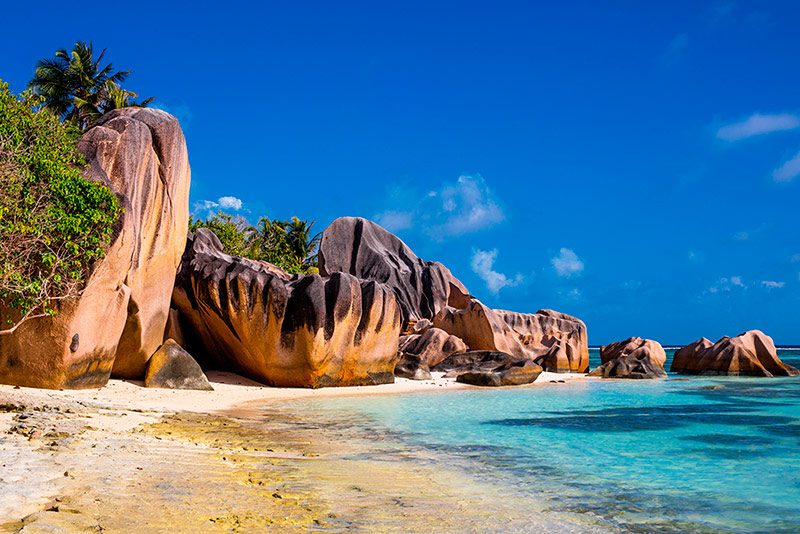“蓝色债券”:为塞舌尔的海滨保驾护航

|
我们能否在金融上找到气候变化和海洋污染的出路?也许不能,不过金融创新正在成为一种保护地球的流行工具。国际非营利机构气候债券倡议组织(Climate Bonds Initiative)的数据显示,“绿色债券”(一个为环保项目筹措资金的资产类别,诞生已经有十年时间)的市场在去年达到了历史新高的1,637亿美元,与2014年发行的366亿美元相比有大幅提升。 如今,一系列旨在保护海洋、缓解全球水资源危机的新型金融工具应运而生。其中包括“蓝色债券”,它们和亲戚绿色债券的机制类似,用于筹集资金解决海洋塑料污染[最近摩根士丹利(Morgan Stanley)就出售了价值1,000万美元的该类债券]、废水管理等一系列问题。去年,塞舌尔发行了数百万美元的蓝色债券,而代表波罗的海和北欧国家的北欧投资银行(Nordic Investment Bank)今年也紧随其后。摩根士丹利的绿色、社会、可持续债券部门主管纳温杜·卡图甘波拉表示:“我们的事业还有待深入开展。” 塞舌尔的经济主要来源于旅游业和渔业,海洋的健康与该国休戚相关。他们与国际非营利组织大自然保护协会(The Nature Conservancy)签署了一份开创性的协议。大自然保护协会将购买塞舌尔的大笔债务并为其重新融资,而塞舌尔政府承诺用新募集的资金保护和管理海洋资源。大自然保护协会与塞舌尔签署的这份协议采用了类似之前(成功)在拉丁美洲实施的“债务换自然”的模式,该组织还计划与其他几十个沿海国家和岛国合作,采用类似的融资策略。大自然保护协会的罗伯特·维尔利表示,如果能够顺利实施,包括民生和环境在内的整个“蓝色经济”都会变得更好。(财富中文网) 本文另一版本登载于《财富》杂志2019年7月刊,标题为《为塞舌尔的海滨保驾护航》。 译者:严匡正 |
Can we financially engineer our way out of climate change and polluted oceans? Maybe not, but financial innovation is emerging as a popular tool to help in the race to protect the planet. Last year, the market for “green bonds,” a decade-old asset class that funds environmentally friendly projects, reached a record $163.7 billion, up from $36.6 billion issued in 2014, according to the Climate Bonds Initiative, an international not-for-profit. Now there is a wave of novel financial instruments aimed at saving the oceans and alleviating the world’s water crises. They include “blue bonds,” which, structured like their chromatic cousins, are being used to raise money to tackle issues from the ocean’s plastic waste problem (Morgan Stanley recently sold $10 million worth) to wastewater management. Last year, Seychelles launched a multimillion-dollar blue bond, and the Nordic Investment Bank, on behalf of Baltic and Nordic countries, did so this year. “We’re just scratching the surface,” says Navindu Katugampola, head of green, social, and sustainability bonds at Morgan Stanley. Seychelles, whose economy—largely, tourism and fish—heavily depend on healthy oceans, also did a groundbreaking deal with the international nonprofit The Nature Conservancy (TNC). In exchange for TNC purchasing and refinancing a chunk of the nation’s debt, the government committed to using the newly raised capital to protect and manage marine resources. TNC, which structured the deal like previous (and successful) debt-for-nature swaps in Latin America, plans to work with dozens of other coastal and island nations on similar financing maneuvers. Done right, says TNC’s Robert Weary, the whole “blue economy”—livelihoods and the environment—should be better off. A version of this article appears in the July 2019 issue of Fortune with the headline “Selling Seychelles for the Seashore.” |













